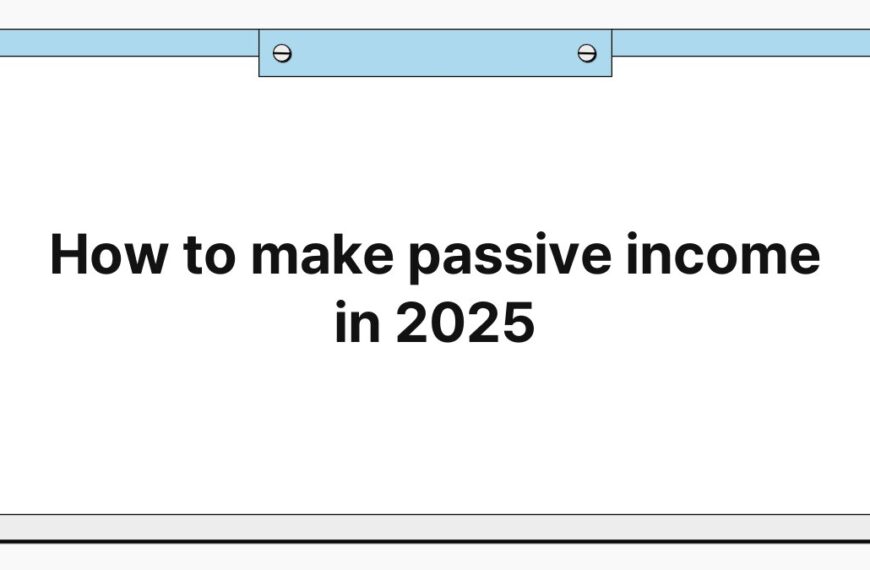[K-Bridge/Samuel] Ozempic weight loss reviews have gained significant attention in recent years, particularly among those seeking effective solutions for weight management.
This medication, originally developed for type 2 diabetes, has been noted for its unintended yet impactful side effect of weight loss.
Many users have shared their experiences, highlighting both the benefits and challenges associated with its use.
In this article, we will explore various aspects of Ozempic, including its mechanism, real user reviews, potential side effects, and comparisons with other weight loss methods.
By the end of this piece, you will have a comprehensive understanding of Ozempic and its role in weight loss.
Understanding Ozempic and Its Mechanism
What is Ozempic?
Ozempic, or semaglutide, is a glucagon-like peptide-1 (GLP-1) receptor agonist.
It mimics the function of a hormone that regulates blood sugar levels, thereby aiding in glucose metabolism.
Initially approved for managing type 2 diabetes, it has recently garnered attention for its weight loss properties.
The medication works by stimulating insulin secretion, reducing appetite, and slowing gastric emptying, which collectively contribute to weight loss.
This multifaceted approach not only helps individuals with diabetes but also supports weight management in those without this condition.
How Does Ozempic Promote Weight Loss?
The weight loss effects of Ozempic can be attributed to its ability to influence appetite and food intake.
By acting on the brain’s appetite control centers, it helps users feel fuller for longer periods, reducing the overall caloric intake.
Additionally, the slowed gastric emptying means that food stays in the stomach longer, prolonging the sensation of fullness.
Studies indicate that individuals taking Ozempic have reported significant weight loss, with many experiencing an average reduction of 10% to 15% of their body weight over a year.
Clinical Evidence Supporting Ozempic’s Efficacy
Clinical trials have consistently demonstrated the efficacy of Ozempic in promoting weight loss.
In a pivotal study, participants who received Ozempic experienced more significant weight loss compared to those on a placebo.
The results were not only statistically significant but also clinically meaningful, as many participants reported improvements in their overall health and well-being.
These findings have led to the growing acceptance of Ozempic as a viable option for weight management, even among individuals without diabetes.
User Experiences and Reviews
Positive Feedback from Users
Many individuals who have used Ozempic for weight loss have shared positive reviews, highlighting their successful weight reduction journeys.
Users often report feeling less hungry and having more control over their eating habits.
This newfound sense of control can be empowering, allowing individuals to make healthier food choices without the constant battle against cravings.
Furthermore, many users note improvements in their energy levels and overall health, which adds to their motivation to maintain a healthier lifestyle.
Challenges Faced by Users
While the positive reviews are compelling, it is essential to acknowledge the challenges some users face.
Some individuals report gastrointestinal side effects, such as nausea, diarrhea, or constipation, particularly when starting the medication.
These side effects can be uncomfortable and may deter some users from continuing the treatment.
Additionally, the cost of Ozempic can be a barrier for many, as it is not always covered by insurance, leading to concerns about accessibility for those who could benefit from it.
Real-Life Success Stories
Numerous success stories illustrate the transformative impact of Ozempic on users’ lives.
One individual shared how they lost over 30 pounds within a year, attributing their success to the medication’s appetite-suppressing effects.
Another user highlighted the positive changes in their relationship with food, stating that they no longer felt compelled to snack mindlessly.
These testimonials underscore the potential of Ozempic as a significant aid in weight loss efforts, providing hope for individuals struggling with obesity or weight-related health issues.
Potential Side Effects of Ozempic
Common Side Effects
As with any medication, Ozempic is not without its side effects.
Commonly reported side effects include nausea, vomiting, diarrhea, and abdominal pain.
These symptoms are usually mild to moderate and tend to diminish over time as the body adjusts to the medication.
It is crucial for users to be aware of these potential side effects and to discuss any concerns with their healthcare provider before starting the treatment.
Serious Side Effects and Risks
Though rare, some serious side effects have been associated with Ozempic.
These can include pancreatitis, kidney problems, and allergic reactions.
Individuals with a history of pancreatitis should approach this medication with caution and consult their healthcare provider.
Additionally, monitoring kidney function is essential, particularly for those with pre-existing kidney conditions.
Being informed about these risks can help users make educated decisions regarding their treatment options.
Managing Side Effects
For those experiencing side effects, there are strategies to manage these symptoms effectively.
Gradually increasing the dosage of Ozempic can help minimize gastrointestinal discomfort.
Additionally, staying hydrated and consuming smaller, more frequent meals may alleviate some symptoms.
Open communication with healthcare providers is vital, as they can offer personalized advice and adjustments to the treatment plan if necessary.
Ozempic vs.
Other Weight Loss Methods
Comparing Ozempic with Lifestyle Changes
When evaluating weight loss options, it is vital to consider the role of lifestyle changes alongside medications like Ozempic.
While Ozempic can facilitate weight loss, sustainable results often require a combination of dietary modifications and physical activity.
Integrating a balanced diet rich in whole foods and regular exercise can enhance the effects of Ozempic and promote long-term weight management.
Users should view Ozempic as a tool that complements their overall weight loss strategy rather than a standalone solution.
Ozempic Compared to Other Medications
Ozempic is not the only medication available for weight loss.
Other options, such as phentermine or orlistat, have been used for weight management.
However, Ozempic’s unique mechanism of action and proven efficacy make it a compelling choice for many individuals.
Unlike some other medications that primarily suppress appetite, Ozempic also addresses metabolic factors, contributing to more significant weight loss outcomes.
Understanding these differences can help users make informed decisions about their treatment options.
Evaluating Surgical Options
For individuals with severe obesity, surgical interventions such as gastric bypass or sleeve gastrectomy may be considered.
While these procedures can lead to substantial weight loss, they come with inherent risks and require significant lifestyle changes post-surgery.
Ozempic offers a non-invasive alternative that can be effective for those who may not be candidates for surgery.
Comparing these options allows users to choose a path that aligns with their health goals and personal circumstances.
Long-Term Weight Management with Ozempic
Setting Realistic Goals
When using Ozempic for weight loss, setting realistic and achievable goals is crucial.
Users should aim for gradual weight loss rather than rapid results, as sustainable changes often lead to better long-term outcomes.
Establishing milestones, such as losing 1-2 pounds per week, can help maintain motivation and track progress.
Acknowledging small victories along the way can foster a positive mindset and encourage continued adherence to the treatment plan.
The Importance of Support Systems
Having a strong support system can significantly impact the success of weight loss efforts.
Engaging with healthcare providers, nutritionists, and support groups can provide valuable resources and encouragement.
Sharing experiences with others on a similar journey can foster a sense of community and accountability, making the weight loss process more manageable.
Users should not hesitate to seek out support, as it can play a pivotal role in achieving and maintaining their weight loss goals.
Monitoring Progress and Adjustments
Regularly monitoring progress is essential for individuals using Ozempic for weight loss.
Keeping a food diary, tracking physical activity, and scheduling follow-up appointments with healthcare providers can help users stay on track.
If weight loss plateaus or side effects become troublesome, adjustments to the treatment plan may be necessary.
Open communication with healthcare professionals can ensure that users receive the support and guidance needed to navigate their weight loss journey effectively.
The Future of Ozempic in Weight Management
Ongoing Research and Developments
As the popularity of Ozempic continues to grow, ongoing research is exploring its long-term effects and potential applications beyond weight loss.
Studies are investigating its impact on cardiovascular health, metabolic syndrome, and other related conditions.
These developments may expand the understanding of Ozempic’s benefits and further solidify its role in comprehensive weight management strategies.
Expanding Access to Ozempic
One of the significant challenges facing Ozempic users is accessibility, particularly concerning insurance coverage and cost.
Advocacy for broader access to this medication is essential, as it can be a life-changing option for many individuals struggling with obesity.
Efforts to raise awareness about the benefits of Ozempic may lead to increased acceptance among healthcare providers and insurance companies, ultimately improving access for those in need.
Integrating Ozempic into Holistic Approaches
The future of weight management may see a more integrated approach, combining medications like Ozempic with lifestyle interventions and behavioral therapies.
This comprehensive strategy can address the multifaceted nature of obesity, providing individuals with the tools they need to succeed.
By fostering a holistic understanding of weight management, healthcare providers can better support individuals in achieving their health goals.
Conclusion
Ozempic has emerged as a promising option for weight loss, garnering positive reviews from users who have experienced its benefits.
While it is essential to be aware of potential side effects and challenges, many individuals have successfully integrated Ozempic into their weight management strategies.
By understanding the medication’s mechanism, comparing it with other methods, and adopting a holistic approach, users can achieve sustainable weight loss.
As research continues to evolve, the future of Ozempic in weight management looks bright, offering hope to those seeking effective solutions for their weight-related challenges.








